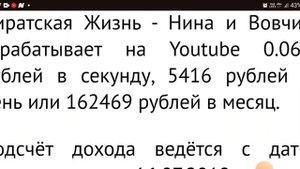
 1:10:30
1:10:30
2024-09-08 23:15

 11:15
11:15

 11:15
11:15
2024-11-07 19:30

 2:34
2:34

 2:34
2:34
2024-05-04 04:31

 15:00
15:00

 15:00
15:00
2023-12-12 02:48

 0:31
0:31

 0:31
0:31
2023-12-30 05:35

 0:38
0:38

 0:38
0:38
2024-04-21 19:16

 0:56
0:56

 0:56
0:56
2025-04-09 13:01

 1:48
1:48

 1:48
1:48
2025-05-17 18:56

 8:34
8:34

 8:34
8:34
2023-12-31 20:13

 2:49
2:49

 2:49
2:49
2024-10-07 12:41

 21:30
21:30

 21:30
21:30
2024-02-19 01:21

 46:21
46:21

 46:21
46:21
2021-07-18 07:00

 3:30
3:30

 3:30
3:30
2023-08-09 11:40
![Приключения Незнайки и его друзей. Глава 24]() 9:02
9:02
 9:02
9:02
2019-03-28 15:46

 6:03
6:03

 6:03
6:03
2023-01-16 17:35

 3:13
3:13

 3:13
3:13
2022-07-11 18:23

 9:58
9:58

 9:58
9:58
2025-02-12 10:36

 16:34
16:34
![Рустам Батербиев - Пора расстаться (Премьера клипа 2025)]() 2:38
2:38
![Жалолиддин Ахмадалиев - Тонг отгунча (Премьера клипа 2025)]() 4:44
4:44
![Азиз Абдуллох - Аллохнинг айтгани булади (Премьера клипа 2025)]() 3:40
3:40
![Джатдай - Забери печаль (Премьера клипа 2025)]() 2:29
2:29
![Зара - Я несла свою беду (Премьера клипа 2025)]() 3:36
3:36
![Ольга Бузова - Не надо (Премьера клипа 2025)]() 3:15
3:15
![Светлана Ларионова - Осень отстой (Премьера клипа 2025)]() 3:30
3:30
![MEDNA - Алё (Премьера клипа 2025)]() 2:28
2:28
![Фаррух Хамраев - Отажоним булсайди (Премьера клипа 2025)]() 3:08
3:08
![Taylor Swift - The Fate of Ophelia (Official Video 2025)]() 3:58
3:58
![Олег Семенов - Бархатный сезон (Премьера клипа 2025)]() 3:51
3:51
![Аля Вайш - По кругу (Премьера клипа 2025)]() 2:37
2:37
![Selena Gomez - In The Dark (Official Video 2025)]() 3:04
3:04
![Виктория Качур - Одного тебя люблю (Премьера клипа 2025)]() 3:59
3:59
![Zhamil Turan - Капали (Премьера клипа 2025)]() 3:08
3:08
![MILEN - Украду тебя (Премьера 2025)]() 3:40
3:40
![ИЮЛА - Ты был прав (Премьера клипа 2025)]() 2:21
2:21
![Игорь Крутой - Зонтик (Премьера клипа 2025)]() 4:00
4:00
![Сергей Сухачёв - Розовый туман (Премьера клипа 2025)]() 3:13
3:13
![Ольга Сокурова, Ислам и Карина Киш – СИ ГУГЪАПlЭ (Премьера клипа 2025)]() 3:20
3:20
![Псы войны | Hounds of War (2024)]() 1:34:38
1:34:38
![Непрощённая | The Unforgivable (2021)]() 1:54:10
1:54:10
![Девушка из каюты №10 | The Woman in Cabin 10 (2025)]() 1:35:11
1:35:11
![Плюшевый пузырь | The Beanie Bubble (2023)]() 1:50:15
1:50:15
![Одноклассницы | St. Trinian's (2007)]() 1:36:32
1:36:32
![Порочный круг | Vicious (2025)]() 1:42:30
1:42:30
![Тот самый | Him (2025)]() 1:36:20
1:36:20
![Сколько стоит жизнь? | What Is Life Worth (2020)]() 1:58:51
1:58:51
![Фантастическая четвёрка: Первые шаги | The Fantastic Four: First Steps (2025)]() 1:54:40
1:54:40
![Эффект бабочки | The Butterfly Effect (2003)]() 1:53:35
1:53:35
![Плохой Cанта 2 | Bad Santa 2 (2016) (Гоблин)]() 1:28:32
1:28:32
![Хани, не надо! | Honey Don't! (2025)]() 1:29:32
1:29:32
![Долгая прогулка | The Long Walk (2025)]() 1:48:08
1:48:08
![Когда ты закончишь спасать мир | When You Finish Saving the World (2022)]() 1:27:40
1:27:40
![Вечеринка только начинается | The Party's Just Beginning (2018)]() 1:31:20
1:31:20
![Мальчишник в Таиланде | Changeland (2019)]() 1:25:47
1:25:47
![Любимец женщин | Roger Dodger (2002)]() 1:41:29
1:41:29
![Супруги Роуз | The Roses (2025)]() 1:45:29
1:45:29
![Только ты | All of You (2025)]() 1:38:22
1:38:22
![Лучшее Рождество! | Nativity! (2009)]() 1:46:00
1:46:00
![Мультфильмы военных лет | Специальный проект к 80-летию Победы]() 7:20
7:20
![МиниФорс Сезон 1]() 13:12
13:12
![Сборники «Ну, погоди!»]() 1:10:01
1:10:01
![Енотки]() 7:04
7:04
![Забавные медвежата]() 13:00
13:00
![Полли Покет Сезон 1]() 21:30
21:30
![Агент 203]() 21:08
21:08
![Команда Дино. Исследователи Сезон 2]() 13:26
13:26
![МегаМен: Полный заряд Сезон 1]() 10:42
10:42
![Лудлвилль]() 7:09
7:09
![Отважные мишки]() 13:00
13:00
![Тайны Медовой долины]() 7:01
7:01
![Сандра - сказочный детектив Сезон 1]() 13:52
13:52
![Кадеты Баданаму Сезон 1]() 11:50
11:50
![Артур и дети круглого стола]() 11:22
11:22
![Приключения Пети и Волка]() 11:00
11:00
![Игрушечный полицейский Сезон 1]() 7:19
7:19
![Зомби Дамб]() 5:14
5:14
![Роботы-пожарные]() 12:31
12:31
![Команда Дино Сезон 1]() 12:08
12:08

 16:34
16:34Скачать видео
| 256x144 | ||
| 426x240 | ||
| 640x360 | ||
| 854x480 | ||
| 1280x720 | ||
| 1920x1080 |
 2:38
2:38
2025-10-16 11:06
 4:44
4:44
2025-10-19 10:46
 3:40
3:40
2025-10-18 10:34
 2:29
2:29
2025-10-24 11:25
 3:36
3:36
2025-10-18 10:07
 3:15
3:15
2025-10-18 10:02
 3:30
3:30
2025-10-24 11:42
 2:28
2:28
2025-10-21 09:22
 3:08
3:08
2025-10-18 10:28
 3:58
3:58
2025-10-17 11:48
 3:51
3:51
2025-10-16 10:57
 2:37
2:37
2025-10-23 11:33
 3:04
3:04
2025-10-24 11:30
 3:59
3:59
2025-10-24 12:00
 3:08
3:08
2025-10-22 14:26
 3:40
3:40
2025-10-15 11:15
 2:21
2:21
2025-10-18 10:16
 4:00
4:00
2025-10-18 10:19
 3:13
3:13
2025-10-24 12:18
 3:20
3:20
2025-10-15 10:27
0/0
 1:34:38
1:34:38
2025-08-28 15:32
 1:54:10
1:54:10
2025-08-27 17:17
 1:35:11
1:35:11
2025-10-13 12:06
 1:50:15
1:50:15
2025-08-27 18:32
 1:36:32
1:36:32
2025-08-28 15:32
 1:42:30
1:42:30
2025-10-14 20:27
 1:36:20
1:36:20
2025-10-09 20:02
 1:58:51
1:58:51
2025-08-27 17:17
 1:54:40
1:54:40
2025-09-24 11:35
 1:53:35
1:53:35
2025-09-11 08:20
 1:28:32
1:28:32
2025-10-07 09:27
 1:29:32
1:29:32
2025-09-15 11:39
 1:48:08
1:48:08
2025-10-24 17:32
 1:27:40
1:27:40
2025-08-27 17:17
 1:31:20
1:31:20
2025-08-27 17:17
 1:25:47
1:25:47
2025-08-27 17:17
 1:41:29
1:41:29
2025-08-15 19:31
 1:45:29
1:45:29
2025-10-23 18:26
 1:38:22
1:38:22
2025-10-01 12:16
 1:46:00
1:46:00
2025-08-27 17:17
0/0
 7:20
7:20
2025-05-03 12:34
2021-09-23 00:15
 1:10:01
1:10:01
2025-07-25 20:16
 7:04
7:04
2022-03-29 18:22
 13:00
13:00
2024-12-02 13:15
2021-09-22 23:09
 21:08
21:08
2025-01-09 16:39
2021-09-22 22:54
2021-09-22 21:43
 7:09
7:09
2023-07-06 19:20
 13:00
13:00
2024-11-29 13:39
 7:01
7:01
2022-03-30 17:25
2021-09-22 20:39
2021-09-22 21:17
 11:22
11:22
2023-05-11 14:51
 11:00
11:00
2022-04-01 17:59
2021-09-22 21:03
 5:14
5:14
2024-11-28 13:12
2021-09-23 00:12
2021-09-22 22:29
0/0

